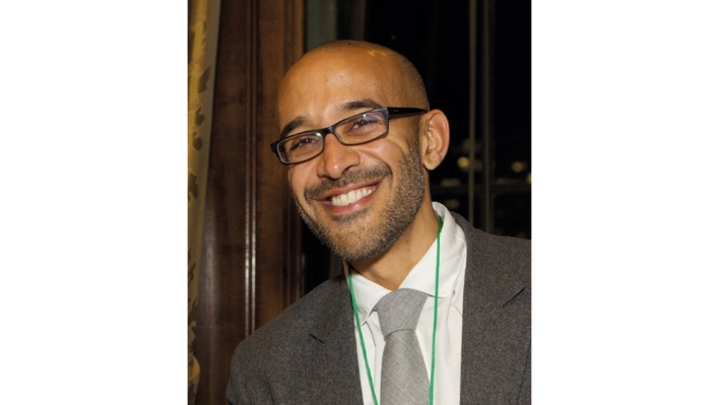The deafening silence over what devo max means for the BBC and other broadcasters is no longer tenable, writes Maggie Brown
When Scotland voted against independence on 18 September, the question of whether control over broadcasting would be part of a new devolution settlement was left hanging in the air.
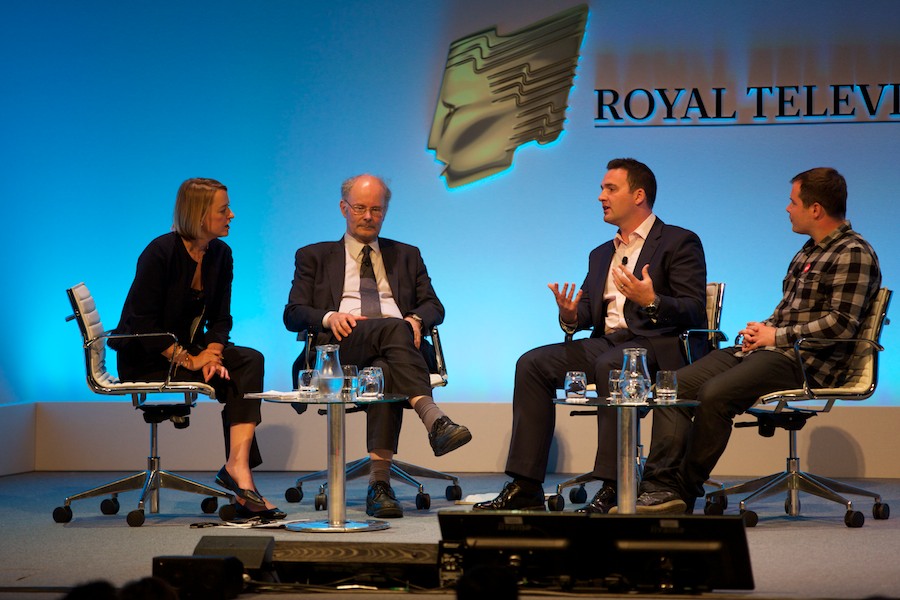 The issue of Scottish media was discussed at this year's London Conference, by a panel chaired by Laura Kuenssberg (left) and including (l-r) John Curtice, Gregor Poynton and Ross Colquhoun (Credit: Paul Hampartsoumian)
The issue of Scottish media was discussed at this year's London Conference, by a panel chaired by Laura Kuenssberg (left) and including (l-r) John Curtice, Gregor Poynton and Ross Colquhoun (Credit: Paul Hampartsoumian)
John McVay, Chief Executive of independent producers group Pact, expressed a sentiment widely held in Scotland: "The vote hasn't settled anything. Instead of clarity, there is nervousness." He was speaking in October, after a post-referendum meeting of his TV-production members in Glasgow.
McVay has been shocked by the lack of awareness in London of how volatile the situation is in Scotland.
The nervousness about what happens next is such that few senior broadcasting executives wish to speak openly.
The media city of Glasgow, the BBC's Scottish base, voted 53.5% in favour of independence. Many of the city's media and cultural elite believed that Scotland would deliver a yes vote.
"In Westminster, people think that it is settled, over," said McVay, pointing out that pro-independence demonstrations were still taking place in Glasgow.
This sense that the winds of change are still blowing strongly is echoed by Glasgow University's Professor of Cultural Policy, Philip Schlesinger. He is also a visiting professor at LSE, a member of the Ofcom Nations Committee, Chair of Ofcom's Advisory Committee for Scotland and a member of its Content Board.
"No one has given proper attention to broadcasting and devo max in Scotland because of the polarised debate," says Schlesinger, speaking in a personal capacity and not on behalf of Ofcom.
He also thinks that large swathes of eastern England, from the North East through Yorkshire and the East Midlands to East Anglia, have been disadvantaged in terms of reduced television production and representation.
This worries McVay, too. He fears that the consequences of the Scottish National Party's demands for a big increase in Scottish production would be a "beggar my neighbour" approach.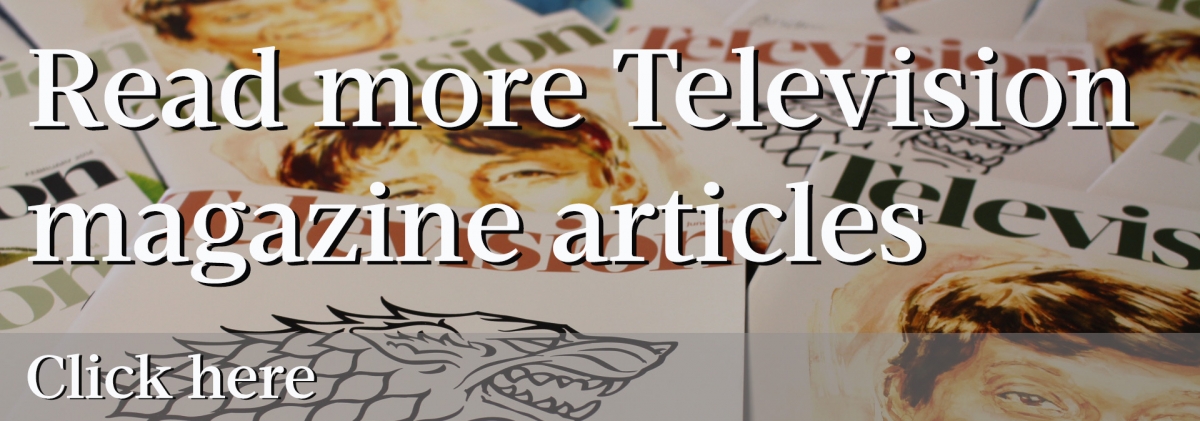
"The SNP doesn't understand," he says. "The cake for the BBC is not getting any bigger."
Gordon Brown's intervention at the Loanhead Miners Welfare and Social Club, remember, promised Scottish home rule with a 10-point plan for devolving powers over borrowing, job creation and employment rights. Significantly, however, the plan did not mention broadcasting.
The vow in referendum week, from the three main UK party leaders, for "faster, safer, better change" for Scotland was interpreted by the SNP as a huge transfer of powers. (This was, of course, ahead of the actual 55% no vote.)
The SNP's contribution to the Smith Commission, the body that is attempting to corral a cross-party consensus in drafting the forthcoming Scotland Bill (see below), is, unsurprisingly, "devo-max" in its approach.
"No one has given proper attention to broadcasting and devo max in Scotland because of the polarised debate"
The SNP argues for Scottish control of taxation revenue raised in Scotland, adding that "other economic levers (outside of taxation), including competition, energy and broadcasting policy...should be devolved". The submission to Smith explains that "devolution of broadcasting would provide the leverage needed to enhance job creation, through increased production, contribute to a fairer society and enable Scotland to better express itself in the world".
But it does not spell out whether a Scottish government would expect to control the £320m of licence-fee money paid by Scots, or a planned new channel for Scotland, costing £75m a year under the proposed Scottish Broadcasting Service. Indeed, it does not mention the BBC by name.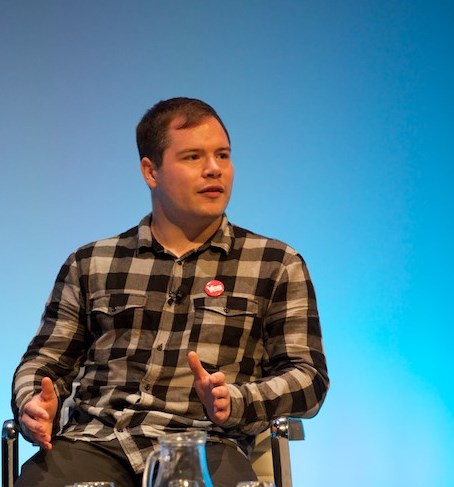 National Collective's Ross Colquhoun told this year's RTS London Conference that he launched the pro-independence website as an alternative to media focusing on "politicians in suits." (Credit: Paul Hampartsoumian)
National Collective's Ross Colquhoun told this year's RTS London Conference that he launched the pro-independence website as an alternative to media focusing on "politicians in suits." (Credit: Paul Hampartsoumian)
Meanwhile, Scottish Culture Secretary Fiona Hyslop is pressing for more independent production to boost the local creative industries.
Alice Enders, of Enders Analysis – who, with sister and company founder Claire, has her main home in Scotland – says: "BBC Scotland is alive, but not well, after the attacks by the SNP for alleged bias. In fact, it was falling over backwards to say nothing at all and, in effect, stifling the no-vote side."
McVay agrees that "BBC Scotland's priority is to re-establish credibility for unbiased reporting".
This question of credibility makes an appearance in the BBC Trust's most recent minutes, published on 16 October. These refer to research quoted by John Boothman, BBC Scotland's Head of News and Current Affairs, which suggests that supporters of independence are "less likely to consider that the BBC's coverage was impartial".
Enders adds: "The BBC will come under a lot of pressure from the SNP in Scotland –which can be deflected. But, after the May 2015 general election, this will mount as it increases its representation". Alex Salmond is expected to stand for election to Westminster and, given Labour's problems in Scotland, many expect him to head a group of upwards of 15 SNP MPs.
Meanwhile, the BBC Trust and Executive Board, which both took a vow of silence during the referendum campaign, are still mute.
"Clearly, there is a range of issues that will be debated between the Westminster and Scottish parliaments now that the Scottish people have made their decision, and the BBC will seek, as always, to cover the issues in an impartial and balanced way," is the official line.
Television's requests to speak to Alison Hastings, the outgoing Trustee for England, about the "English question", and the BBC's problems in the Midlands and North were refused.
There have been looser tongues at the party conferences: senior BBC executives let it be known that they believed Scotland had been well treated.
They highlighted the lavish, David Chipperfield-designed Glasgow HQ, and the transfer of network programmes, such as arts show Imagine and current-affairs flagship Question Time, from London to Scotland.
Schlesinger finds the BBC's ongoing silence frustrating. He thinks it is high time for hard thinking about how the corporation adjusts to life after the referendum.
"It would be nice to have an open debate," he says. "I worry about the excessive partisanship. In the end, some settlement that everyone thinks is workable has to be agreed."
Schlesinger warns that the push for more production in Scotland "has great potential for friction... Where we are headed at the moment, Scotland is going to get the most attention. The quickest fix on it will have anomalous consequences."
Enders believes broadcasting policy is unlikely to be devolved. Moreover, Ofcom (whose licensing regime determines the spectrum available to broadcasters) is bound to be retained as a UK-wide authority.
Channel 4 is quietly relaxed about the no vote and its future; it renewed its licence before the referendum. It has committed to trebling its spending outside of the M25 – but this increase is staggered all the way to 2020.
"BBC Scotland is alive, but not well, after the attacks by the SNP for alleged bias"
STV is judged to have played its hand well during the referendum. It is also quietly optimistic and busy launching its second local-TV station.
Those seeking a template for modifying the status quo – but not too radically – point to the Silk Commission's report on devolution in Wales, published in March.
This rejected an opinion poll in Wales in which 58% supported the devolution of broadcasting. Instead, the report accepted that "neither the Welsh Government nor the UK Government wants to see broadcasting as a whole devolved".
The commission justified its position by pointing to "the importance of broadcasting to a common cultural citizenship across the UK".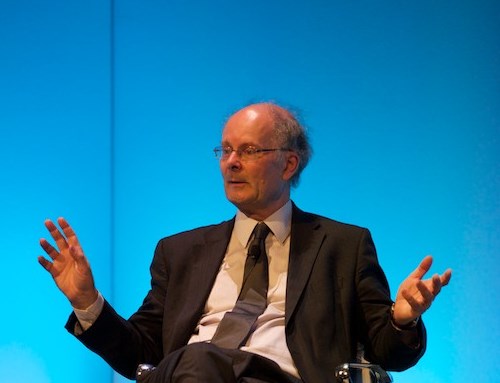 John Curtice told the RTS London Conference that the reason people tuned into the Scottish television debates was because they were interested in that issue (Credit: Paul Harmpartsoumian)
John Curtice told the RTS London Conference that the reason people tuned into the Scottish television debates was because they were interested in that issue (Credit: Paul Harmpartsoumian)
Even so, the report proposed that: "Most of our evidence suggests that the National Assembly and Welsh Government should take an enhanced role in broadcasting."
As for the BBC, it recommends that the Wales Audience Council should be replaced with a devolved Trust for Wales, sitting within the main BBC Trust body. So at the very least – assuming broadcasting doesn't form part of a devo-max agreement – the Scottish Parliament can expect to gain far more oversight, and viewers can expect an increased portrayal of Scotland's affairs on Scottish screens.
The BBC's Scotland Audience Council's most recent report stated bleakly that news programmes had made "no progress" in improving the balance between Scottish stories and those relating only to the rest of the UK.
How long before one symbol of national representation, a BBC Scottish Six O'Clock News, is conceded?
Smith's schedule
The Smith Commission is headed by Lord Smith of Kelvin. He was BBC Governor for Scotland, 1999-2004; Chair of the Organising Committee of the 2014 Commonwealth Games; and is a former Chair of the Weir Group.
10 October: Political parties submit recommendations
31 October: Deadline for civic organisations' submissions
Late November: White Paper
25 January 2015: Draft Scotland Bill (coincidentally, this is Burns Night)
After May 2015: Enactment







